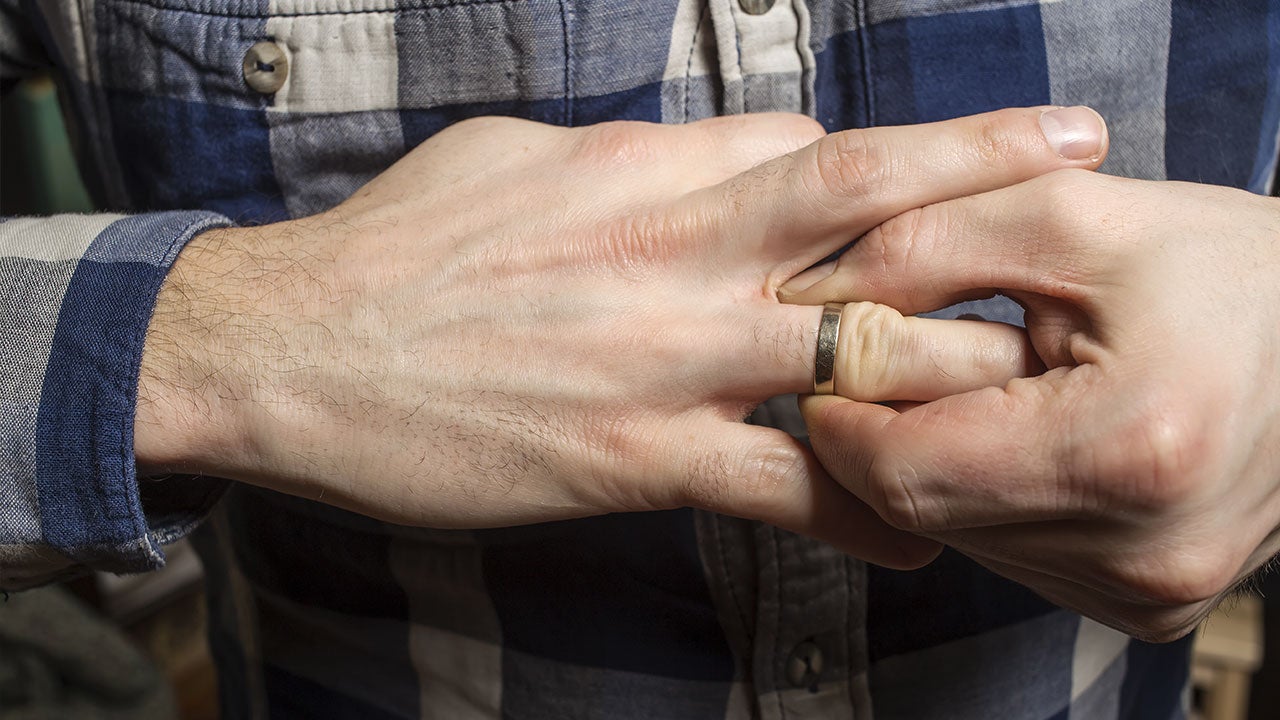What happens to credit card debt when you die?

Key takeaways
- Credit card debt doesn’t disappear after death. In most cases, it’s either paid off through the estate’s assets or becomes the responsibility of a joint account holder or cosigner.
- If an estate can’t cover the debt, the remaining debt may impact beneficiaries and, in certain cases, they could be liable for paying it.
- There are critical steps to take after a credit card holder’s death, including organizing financial documentation, preventing further credit card use, notifying credit card companies and requesting a credit freeze from credit bureaus.
- What happens to card rewards accumulated by a deceased cardholder varies based on the issuer’s policies. Some allow rewards to be passed on to the deceased’s estate while others forfeit the rewards.
No one likes to think about end-of-life matters, let alone make specific plans or have difficult conversations with loved ones on the topic. But uncomfortable as the subject may be, preparing for what happens to your assets — and your debts — after your death is worth doing.
Often these conversations center on “who gets what” and traditional “reading of the will” plans. But your debts, including your credit card debt, are as much a part of what you leave behind as your assets.
What happens to credit card debt, specifically, after a cardholder dies depends on a number of factors, including how the account was set up and the status of the estate.
Who is responsible for debt when someone dies?
Credit card debt doesn’t disappear when someone dies, as issuers still want to recoup their money, even after a cardholder’s death.
There are a few possibilities for who will manage the debt following the cardholder’s death:
- Cosigner or joint account holder. If the credit card was shared with a joint account holder or a cosigner, any lingering debts become their responsibility.
- The estate. If a sole cardholder has debt remaining on a card upon their death, the estate will be responsible for paying off that account from the remaining assets.
- The deceased’s spouse. Whether a person is responsible for a spouse’s credit card debt after death depends on several factors. In community property states, for instance, debts acquired during a marriage are the responsibility of the community — or, in layman’s terms, the couple — even if only one spouse is listed on the account. Other state laws exist that could require the spouse to assume responsibility.
Authorized users
How the estate and beneficiaries are impacted
You may not be held personally responsible for the deceased’s debt, but you’ll still feel the effects of it if you’re a beneficiary of the person’s estate. That’s because any outstanding debts at the time of a person’s death are paid from the estate’s assets before designated beneficiaries receive distributions. In other words, any debts left behind after a loved one dies can quickly eat into their remaining assets, with beneficiaries receiving what’s left over (if anything at all).
Be aware that there is a period of time for creditors to file a claim against the estate following someone’s death. Estate probate — the process through which assets such as cash, investments and real estate are sold or divided among heirs — prioritizes creditors. Unlike secured debt, such as a mortgage secured by property or a car secured by a vehicle, credit card debt is unsecured. Therefore, it’s likely a credit card company will be at the back of the line when it comes to repayment of debts from the estate.
If the estate doesn’t have enough money to pay all debts, the deceased’s credit card debt may go unpaid. In this case, surviving family members aren’t responsible for the debt unless they’re joint account holders or cosigners or are otherwise liable under state laws.
Debt collectors
Six steps to take after a credit card holder dies
Pushing aside (or even forgetting) to notify financial institutions and close credit card accounts when a loved one dies is understandable. But plenty can go wrong if these critical tasks are neglected for too long.
For example, identity thieves sometimes troll obituaries and online records looking for recently deceased people to impersonate when creating new accounts. Hackers may also look for ways to steal from existing accounts of the deceased, which you may not notice if you haven’t notified banks and card issuers of the death.
Here are six steps a family member, beneficiary or heir should take to prevent financial issues when a cardholder dies:
1. Organize all financial documentation
If you’re the executor of an estate, you should start by organizing the person’s financial accounts. Court-certified representatives and surviving spouses can also request copies of the deceased’s credit reports, which list all accounts in that person’s name.
“Sometimes, people can be on a credit card and not even know it,” says Linda Kerns, a Pennsylvania-based attorney. “Maybe when they filled out the credit card applications, [the joint cardholder] didn’t even tell them.”
These accounts can show up years later at the time of a death or divorce.
“I tell people to check their credit card reports regularly,” Kerns advises. “Resolve it before a death or divorce or traumatic event.”
2. Ask for multiple copies of the death certificate
You will likely need several official copies of the death certificate to send to credit card companies, settle life insurance claims and support other estate activities. The funeral director who handles the memorial services for your loved one can help you get copies of the death certificate. You may also be able to request a copy from your state’s Department of Health or Vital Records.
Keep in mind: Official documents usually come with a per-copy cost, which varies by state or even by county in which you live.
3. Prevent further credit card use
After the death of a cardholder, their credit cards are no longer valid. If you’re an authorized user on the account, you can’t use the card — not even for legitimate purchases for the deceased, like a funeral or final expenses.
Continuing to use a credit card as an authorized user after the cardholder’s death is one way people, perhaps unknowingly, commit credit card fraud, and it could get you into big trouble. Estate lawyers recommend collecting all credit cards from people who may have them, including any authorized user cards, and putting them in a safe place or destroying them.
Keep in mind: If you’re the primary cardholder and the deceased is an authorized user, you’ll need to remove them from your account.
4. Notify credit card companies of the death
After you’ve collected the person’s financial accounts, contact each card issuer and request to cancel the accounts. For joint credit cards, you’ll want to notify the issuer that a joint cardholder has died. In both cases, you’ll need to act quickly to avoid interest and finance charges.
Also, find out if any automatic or recurring charges were set up on each credit card account — such as those for phone or utility bills — and cancel or transfer them to another card right away.
Start by calling the number on the back of the card to let them know of the situation. A representative can flag the account and provide the address to which you’ll need to send an official notification letter and supporting documentation, including an official death certificate. Send any documentation by certified mail and save your receipt.
5. Request a credit freeze from all three credit bureaus
It’s a good idea to contact all three credit reporting agencies — Experian, Equifax and TransUnion — to request a credit freeze for the deceased. A freeze can prevent anyone from opening up new credit cards or other accounts using their name and Social Security number.
Start by calling the reporting agencies with the deceased person’s name, Social Security number, date of birth and date of death. Follow up by mail to request that the credit report be immediately flagged as “Deceased. Do Not Issue Credit.”
| Credit bureau | Phone number | Mailing address |
|---|---|---|
| Equifax | 888-378-4329 | Equifax Information Services LLC P.O. Box 105788 Atlanta, GA 30348-5788 |
| Experian | 888-397-3742 | Experian Customer Support P.O. Box 4500 Allen, TX 75013-4500 |
| TransUnion | 800-916-8800 | TransUnion P.O. Box 160 Woodlyn, PA 19094 |
6. Know your rights before paying debt collectors
Depending on your state’s laws, you may also need to wait a specified time for bills to come in as well as post a public notice of death in a newspaper before you can distribute money.
It’s essential to know your rights when dealing with debt collectors. Remember, you’re protected by the federal Fair Debt Collection Practices Act (FDCPA), which makes it illegal for debt collectors to use abusive, unfair or deceptive practices when they collect debts. Don’t let individual creditors convince you they can jump ahead in line and get paid from the estate first — especially if there’s a chance there won’t be enough money to go around.
Some debt collectors can become aggressive, and they may try to prey on survivors’ emotions to get them to pay a debt they may not owe. When reaching a deal with a debt collector, make sure to avoid admitting or agreeing to anything — such as a payment plan — on the phone.
If a card issuer reaches out with a request for payment, ask the credit card company to submit a proof of claim to the estate. You can include this request with your written notification to the credit card company or submit it later.
Bankrate’s take: Seek the assistance of an estate attorney for help with determining the order of debts to be paid in your state or general legal advice while overseeing the final wishes of the deceased.
What happens to credit card rewards when a cardholder dies?
What happens to a cardholder’s accumulated credit card rewards — such as points, miles and cash rewards — after a cardholder dies depends on the card issuer’s policies. If the card is a joint card account, the surviving cardholder will likely retain access to the accumulated rewards.
Some issuers, such as American Express, allow rewards to be passed on to the deceased’s estate for the benefit of their named heirs (typically within a specified timeframe after the cardholder’s death). Other issuers forfeit remaining rewards, leaving no benefit to heirs, while still others automatically convert unused rewards to statement credits.
Credit card issuers generally consider miles or points to belong to the rewards program itself, rather than the cardholder. A first step is to contact the rewards program, bank or card issuer to see if it allows heirs to make use of any points or miles available in the credit card account.
A cardholder may provide heirs information about all their rewards accounts within a will or other estate planning documents, so that they can best manage the rewards after the cardholder’s death.
The bottom line
There are many tasks to manage when someone dies, especially when it comes to financial matters like assets and outstanding debt.
Unfortunately, credit card debt isn’t wiped clean when a cardholder dies. That debt is still owed to the card issuers and usually must be paid by the remaining signatory on the account or by the estate, if sufficient funds exist. If you’re a beneficiary or executor for an estate, it’s important to take appropriate steps to handle remaining credit card debt, including canceling accounts, notifying issuers and the credit bureaus and keeping financial documentation in order.
Why we ask for feedback Your feedback helps us improve our content and services. It takes less than a minute to complete.
Your responses are anonymous and will only be used for improving our website.









